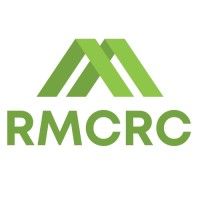Investing in Affordable Housing: A Strategic and Social Imperative
The Community Reinvestment Act (CRA) was designed to ensure that banks and financial institutions invest in low- and moderate-income (LMI) communities. However, while compliance with CRA requirements is mandatory, financial institutions have an opportunity to go beyond regulatory obligations and drive meaningful impact. Community development financial institutions (CDFIs) offer a proven way for banks to deploy their CRA funds efficiently while making a tangible difference in communities.
Why Affordable Housing Investments Matter
Stable, affordable housing is foundational to economic security, improved health outcomes and community stability. However, the affordable housing crisis continues to grow, leaving many individuals and families struggling to find a safe place to live. Banks have a unique opportunity to make a real impact by directing CRA funds toward affordable housing initiatives through CDFIs, ensuring their investments help address this critical issue.
During a recent visit to a newly completed development in Tooele, Utah, I had the opportunity to meet a young man with special needs who had just moved into his new apartment. He welcomed us in, excitedly showing off his space — his furniture, his neatly arranged belongings and the view from his window. His pride in having a place to call his own was evident. This wasn’t just housing; it was dignity, security and a foundation for his future. Stories like his underscore the importance of investing in housing solutions that offer more than just shelter — they provide stability, independence and opportunity.
How Banks Can Leverage CRA Funds for Affordable Housing
Banks can use CRA funds to support affordable housing initiatives in several ways. Financing multifamily housing developments, providing capital for nonprofit housing organizations and funding low-interest mortgage programs are all effective strategies.
CDFIs serve as essential partners in structuring these investments to reduce financial risk while maximizing community impact. By working with CDFIs, banks can engage in pre-vetted, compliant housing projects that align with CRA requirements while ensuring sustainable development in LMI communities. CDFIs specialize in managing these initiatives, allowing financial institutions to participate in housing solutions without taking on undue risk.
The Growing Need for Affordable Housing
The demand for affordable housing continues to rise. Approximately 34% of U.S. households are renters, and a significant portion of the population will likely remain renters long-term. The wealth gap is widening, and economic disparities are becoming more pronounced.
A 2024 report found that 69% of Americans are concerned about housing costs, and the U.S. currently faces a shortage of more than 7.3 million affordable rental homes for extremely low-income households. These figures underscore the urgent need for targeted housing and community development investments.
Breaking Misconceptions: Who Benefits from Affordable Housing?
Affordable housing is often misunderstood. It’s not just for those experiencing homelessness or extreme poverty — it serves a broad spectrum of individuals, including working professionals who contribute to their communities every day. Teachers, police officers, firefighters, healthcare workers and other essential personnel often struggle to find housing near their workplaces due to rising costs. Research shows that two-thirds of renter households led by essential workers earn at or below 80% of the area median income (AMI), yet many lack access to affordable rental options.
Conclusion: A Call To Invest in Affordable Housing
Banks do not have to navigate CRA requirements alone. CDFIs provide a proven, scalable and high-impact solution for reinvestment. Financial institutions can meet CRA obligations by forming strategic partnerships with CDFIs while fostering sustainable economic growth in underserved communities. The most effective banks don’t just comply with CRA requirements — they leverage them as a tool for meaningful community transformation through affordable housing.
Affordable housing investments don’t just support individuals — they strengthen entire communities. When essential workers and families have stable housing, they can focus on their work and well-being, which in turn benefits society. Studies show that building 100 affordable rental homes can generate approximately $11.7 million in local income, $2.2 million in taxes and other revenue for local governments, and create 161 local jobs in the first year alone.
By investing in affordable housing through CDFIs, banks fulfill their CRA obligations and contribute to the long-term economic vitality of the communities they serve. Financial institutions looking to maximize their CRA impact should consider working with experienced CDFIs to ensure their investments create long-term, measurable benefits. By working with CDFIs, banks can move beyond compliance and become true partners in building stronger, more sustainable communities through investments that provide safe, stable and affordable housing for those who need it most.
Christopher Jensen is the president and chief executive officer of RMCRC. He has over 30 years of executive leadership experience in mortgage banking. Since joining RMCRC, he has been instrumental in shaping the organization’s strategic direction, fostering a strong culture and expanding its national footprint.
As CEO, Christopher drives RMCRC’s vision of increasing access to credit and financing for affordable housing projects that serve low- to moderate-income households. He cultivates broad-based relationships with external stakeholders, ensuring RMCRC remains a trusted leader in community reinvestment. His leadership is rooted in a passion for creating meaningful impact — expanding access to affordable housing and fostering a dynamic, collaborative work environment that upholds RMCRC’s core values of integrity, teamwork and innovation.
Christopher holds a bachelor’s degree in political science from the University of Utah and an MBA from the Thunderbird School of Global Management. Originally from Denmark, he appreciates global perspectives and enjoys traveling to understand the world better.
Connect with Christopher on LinkedIn at www.linkedin.com/in/christopher-k-jensen.










